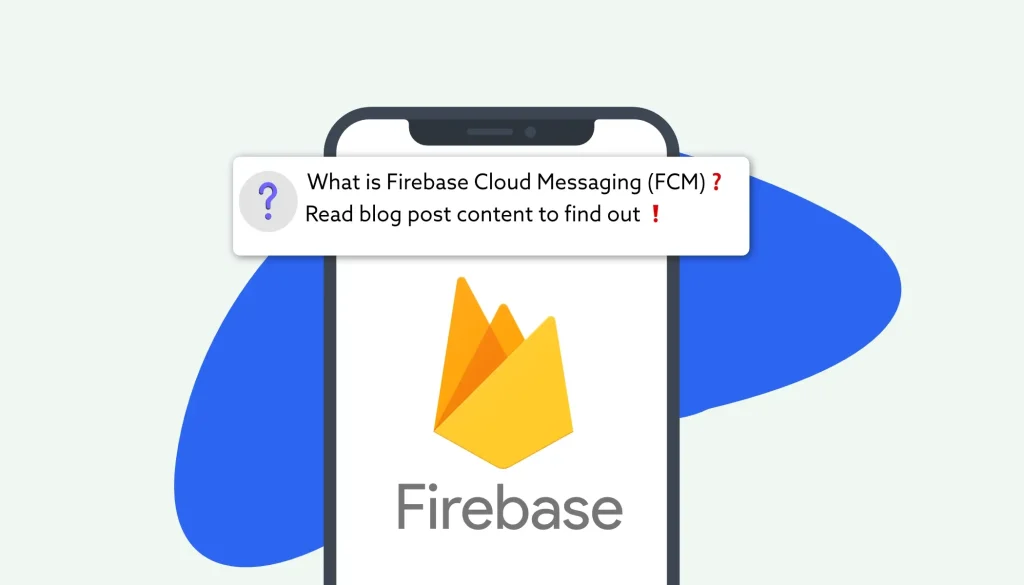Demystifying Firebase Cloud Messaging: What It Is and How It Empowers App Communication

In the ever-evolving landscape of mobile app development, efficient communication with users is paramount for success. With users expecting instant updates, personalized experiences, and real-time alerts, developers require a messaging system that’s not only powerful but also flexible and scalable. Firebase Cloud Messaging (FCM) emerges as a robust solution, enabling developers to send messages and notifications across multiple platforms effortlessly. In this article, we delve into what Firebase Cloud Messaging is, its standout features, and how it revolutionizes app communication in today’s digital ecosystem.
Understanding Firebase Cloud Messaging (FCM)
Firebase Cloud Messaging, formerly known as Google Cloud Messaging (GCM), is Google Firebase’s cross-platform messaging solution. It allows developers to send messages and push notifications to Android, iOS, and web applications without needing to manage their own infrastructure or communication protocols. With FCM, messages can be triggered from the Firebase console, through backend services, or automatically via user interactions or system events.
At its core, FCM operates on a publish-subscribe model, where devices (clients) subscribe to topics or receive direct messages from servers. Developers can send notifications either to individual devices, device groups, or topics that multiple devices are subscribed to. It’s a flexible system designed to suit everything from simple alerts to complex, personalized, and data-driven messaging scenarios.
Additionally, FCM ensures high reliability by leveraging Google’s global infrastructure. Regardless of device type, user location, or network conditions, Firebase prioritizes message delivery so users receive updates with minimal latency. This makes it a reliable choice for time-sensitive notifications like flash sales, security alerts, or transactional updates.
Key Features of Firebase Cloud Messaging
Cross-Platform Support
One of FCM’s greatest strengths lies in its cross-platform capabilities. Whether you’re developing for Android, iOS, or web, FCM provides a unified messaging framework. This drastically reduces the overhead required to maintain separate messaging systems for different platforms, allowing for consistent communication strategies across your entire user base.
Reliability and Scalability
Backed by Google’s infrastructure, FCM is built to handle messaging at scale. Whether you’re sending messages to ten users or ten million, FCM offers the scalability required to support growing applications. It guarantees a high level of reliability by using persistent connections and optimized routing for message delivery.
Targeted Messaging
FCM empowers developers to personalize communication by targeting specific user segments. This can be based on user properties such as location, device type, engagement history, or in-app behavior. Personalized messages lead to better user engagement, higher click-through rates, and a more tailored user experience.
Notification Customization
Customization is key in modern app communication. With FCM, developers can create rich notifications that go beyond plain text. Notifications can include images, custom sounds, deep links, and interactive buttons (like “Reply” or “Mark as Read”), allowing users to interact directly from their notification tray without opening the app.
Analytics and Insights
Through Firebase Analytics integration, FCM provides detailed reporting on delivery performance, open rates, and user behavior in response to messages. These insights allow developers to refine messaging strategies, perform A/B tests, and measure the impact of campaigns over time.
Integration with Firebase Services
FCM seamlessly integrates with other Firebase tools such as Firebase Authentication, Firestore, Firebase Cloud Functions, and Firebase Crashlytics. This integration enables powerful workflows like sending automated notifications upon user sign-in, account activity, or data changes—without writing complex backend logic.
How Firebase Cloud Messaging Empowers App Communication
Real-Time Updates
Whether you’re informing users about new content, system updates, or community activity, FCM allows for instantaneous delivery. Real-time messaging is especially critical in apps like news platforms, ride-sharing services, stock trackers, or social networks where delays can impact user satisfaction.
User Engagement
Push notifications, when used correctly, are one of the most effective tools for increasing user retention. With FCM’s personalization capabilities, developers can re-engage dormant users, remind them of unfinished actions, or prompt participation in events. Thoughtful messaging helps build habits and keeps users coming back.
Transactional Communication
FCM excels at delivering transactional messages triggered by user actions. For example, sending a purchase confirmation, password reset notification, or delivery status update. These messages not only reassure users but also improve the app’s reliability and professionalism.
Marketing and Promotions
FCM can also be used for promotional messaging. Developers and marketers can announce discounts, limited-time deals, product launches, or loyalty rewards. When paired with Firebase Analytics, these promotions can be targeted to specific user groups likely to convert, increasing the ROI of your campaigns.
Customer Support
FCM can serve as a proactive customer support channel. Notifications can alert users about ticket updates, provide troubleshooting advice, or prompt them to complete onboarding steps. By addressing concerns or guiding users in real-time, FCM helps reduce support costs and improves user satisfaction.
Conclusion
Firebase Cloud Messaging (FCM) stands out as a cornerstone of modern app communication. Its cross-platform support, reliable infrastructure, and ability to deliver personalized, engaging, and timely messages make it an indispensable tool for app developers. Whether you’re running a content-rich mobile application, a transactional e-commerce platform, or a service-oriented web app, FCM gives you the tools to inform, engage, and retain your users effectively.
More than just a messaging system, FCM is a bridge between your backend and your users, fostering two-way interaction that enhances the overall app experience. As user expectations grow and real-time responsiveness becomes the norm, leveraging Firebase Cloud Messaging isn’t just a feature—it’s a competitive advantage.
By integrating FCM strategically into your app communication plan, you’ll be better equipped to deliver the right message, to the right user, at the right time—turning ordinary interactions into meaningful engagement.
Like what you’re reading?
Push0 is a privacy-first push notification service built for devs and marketers who care.
Try it free for 14 days — no credit card, no fluff.



